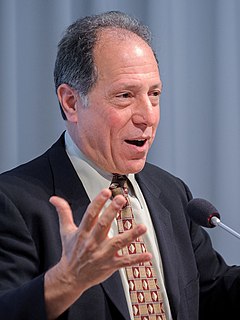A Quote by Stephen Marche
One [paradox] is that pornography follows in that wake of women's liberation. The first instances of hard-core pornography were in late 18th-century in France, "the Golden Age of Women." The next wave in the 20th century comes from Sweden, one of the first countries where women voted. Then Germany, again, at the forefront of progress. Then America in the '80s, when women were closing the pay gap. And Japan, same thing.
Related Quotes
Even into the 20th century, women were still struggling in the Western world for rights that Islam had granted women in the 7th century: equal rights to education; the right to own and inherit property; to have a voice in the decisions affecting their lives; to be active, engaged, and valued members of society at all levels.
When you talk to women who were working as print journalists or in broadcasting in the '50s, and then you talk to women who were working in the late '60s, there's an enormous difference. There had already been a huge transition. Then, of course, you get well into the '70s and there were women with children working.
Guys constantly talk about pornography in two ways: as revenge and as reassurance. When you live in a world in which beautiful, sexy women are all around you, in the same classes, on the same athletic field, competing for the same jobs, then the pornographic world - the world in which women thrill to male sexual desire - reassures men that although they may feel "one down," they're still entitled to women's bodies.
Pornography is not egalitarian and gender-free. It is predicated upon the inequality of women and is the propaganda that makes that inequality sexy. For women to find passive, objectified men sexy in large enough numbers to make a pornography industry based upon such images viable, would require the reconstruction of women's sexuality into a ruling-class sexuality. In an egalitarian society objectification would not exist and therefore the particular buzz provided by pornography, the excitement of eroticised dominance for the ruling class, would be unimaginable.
The first time I remember women reacting to me was when we were filming Hud in Texas. Women were literally trying to climb through the transoms at the motel where I stayed. At first, it's flattering to the ego. At first. Then you realize that they're mixing me up with the roles I play - characters created by writers who have nothing to do with who I am.
We remember when women were spoken of differently. I don't mean that we didn't speak of women sexually - that happened. It was never this crude: there wasn't the connotations, the violence. I think there's got to be a relationship between the coarsening of the culture, of which pornography was a piece of the puzzle.
When I first started to do fashion shows I didn't have the budget to hire top models so I would cast women who inspired me, and ask them to walk how they walked. I was doing a mise en scène, which for me was normal. I love for people to see my clothes, but it was more about the attitude of the girls. The revues of the late 19th century/early 20th century were very much a reflection of what was happening in society and politics, and for me that is also the role of the fashion designer.





































